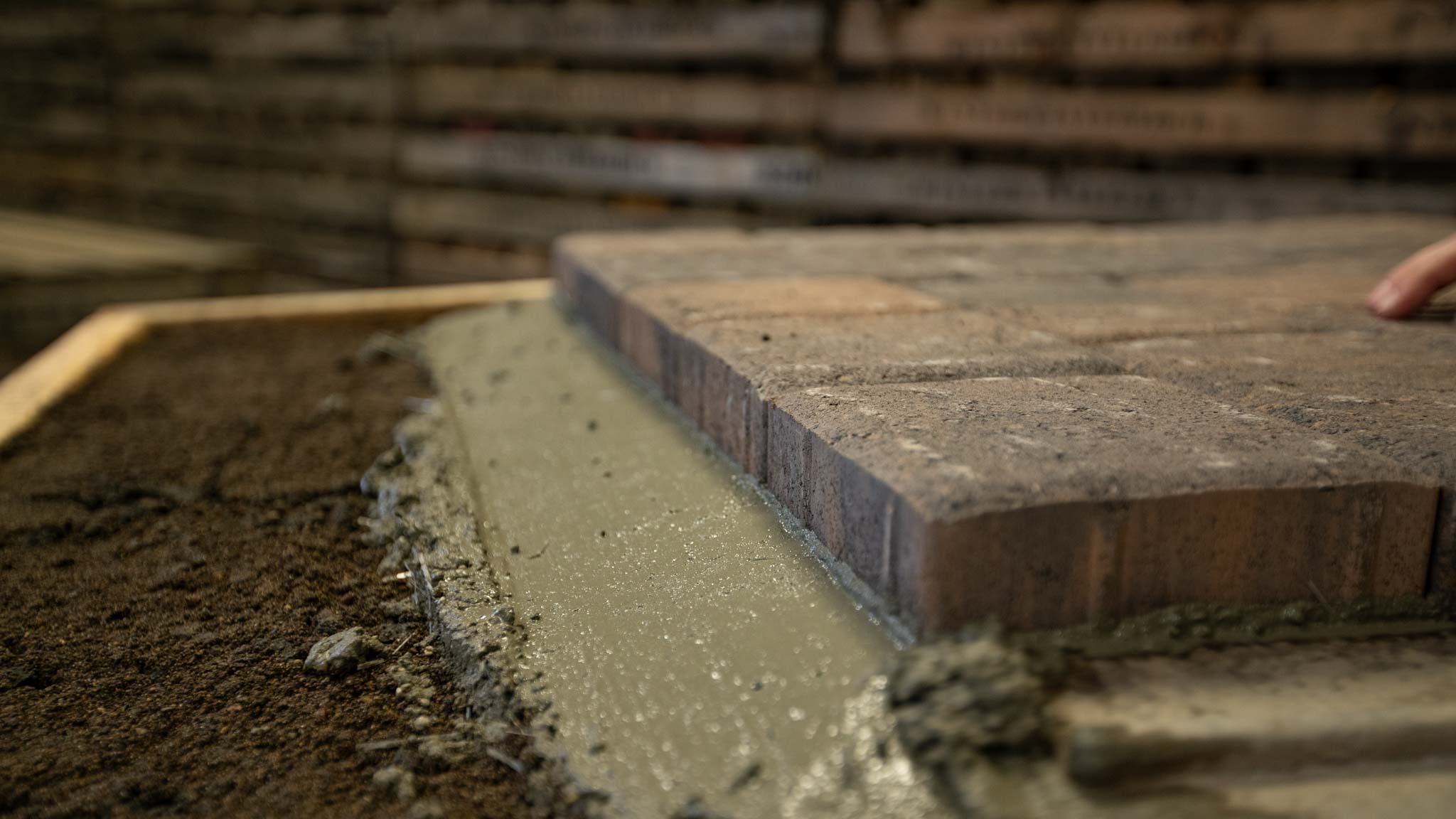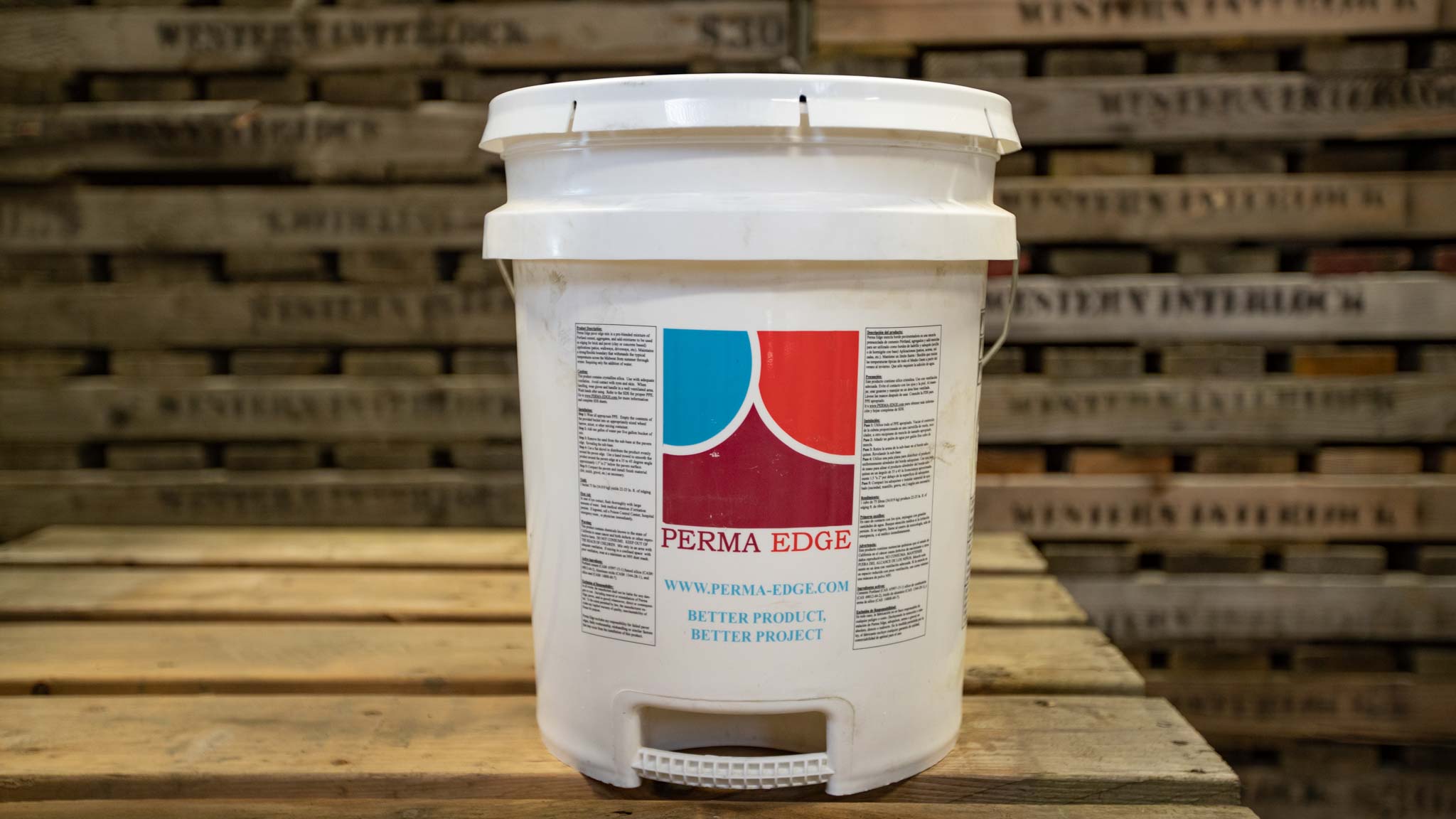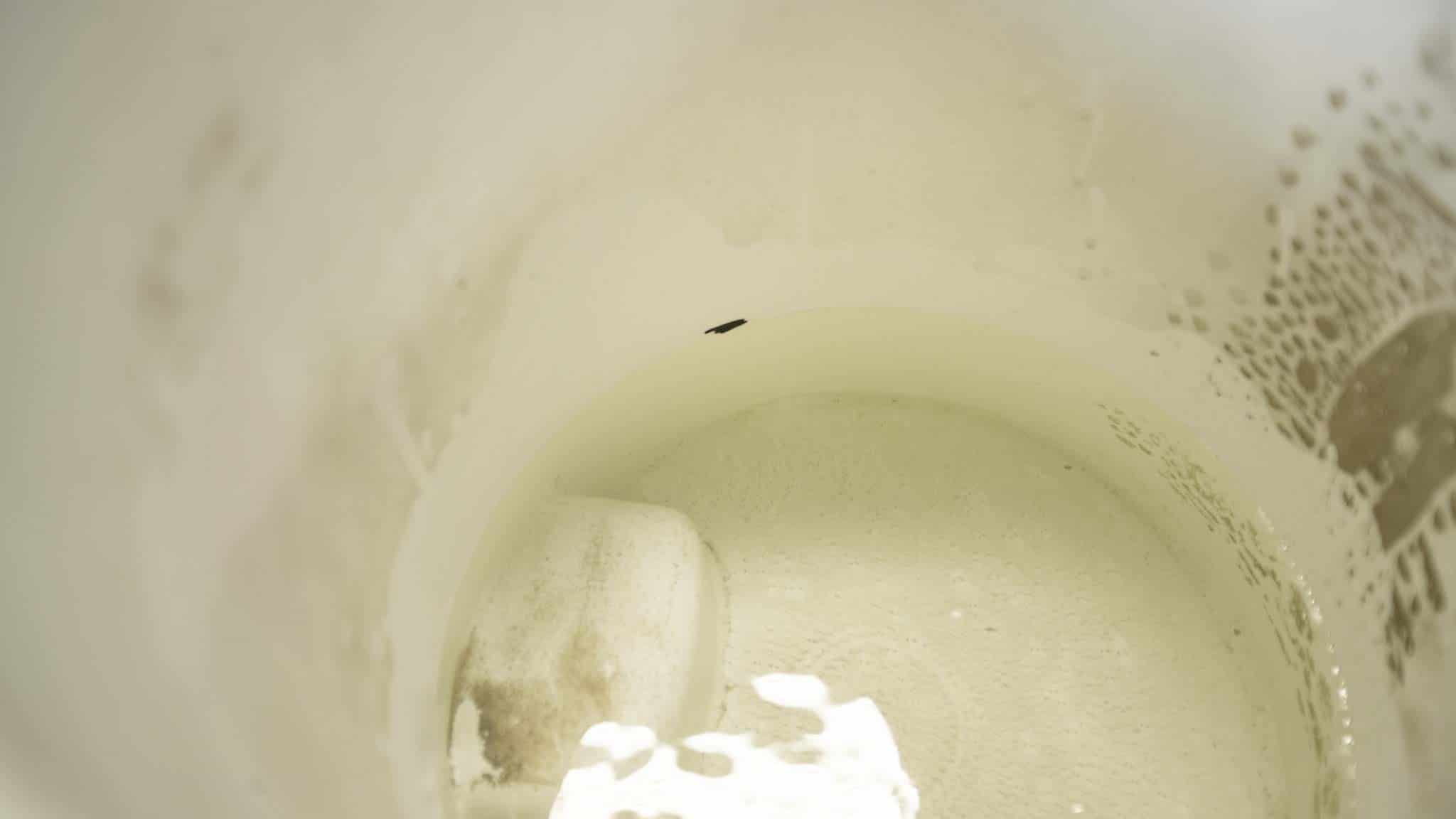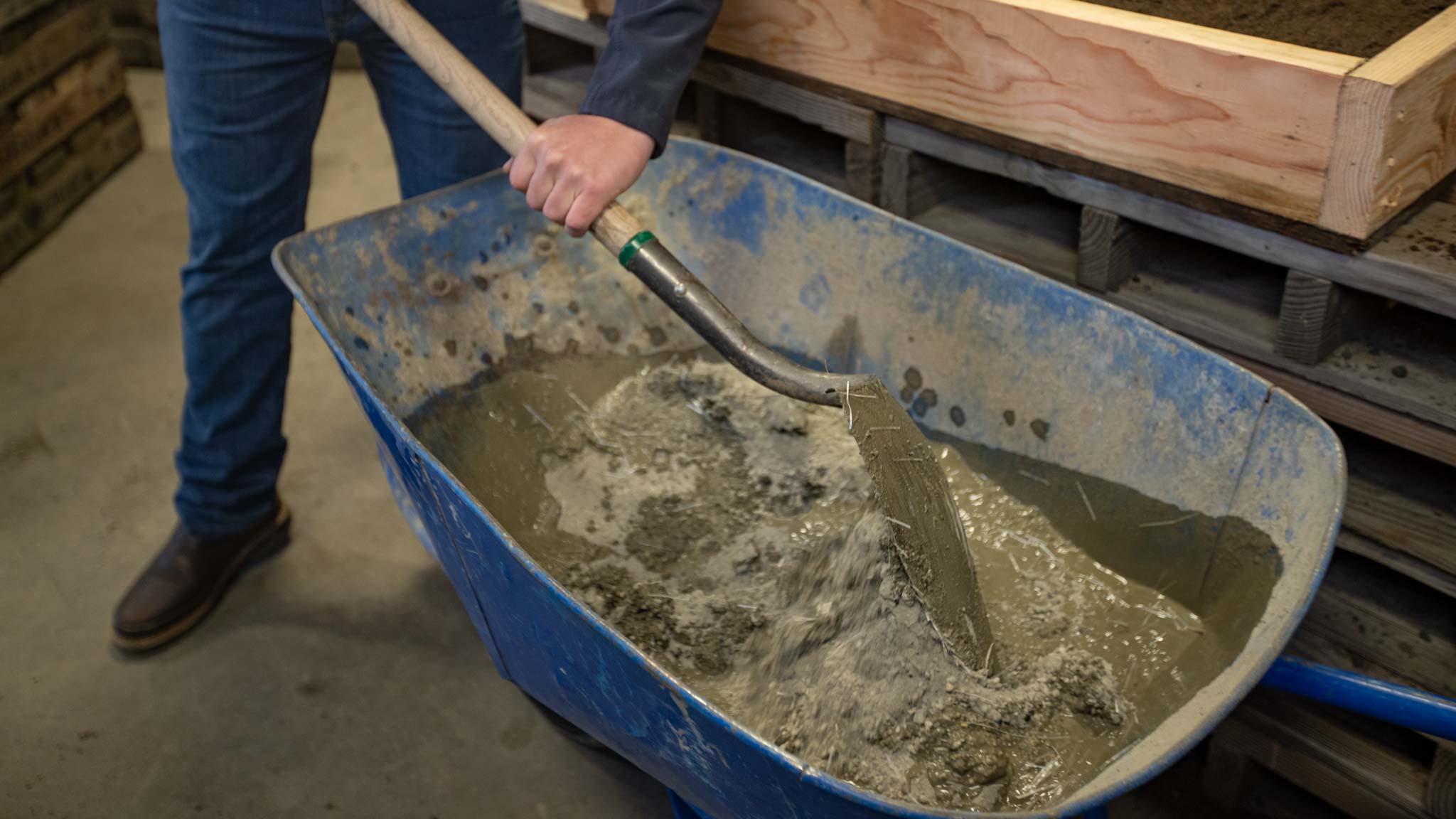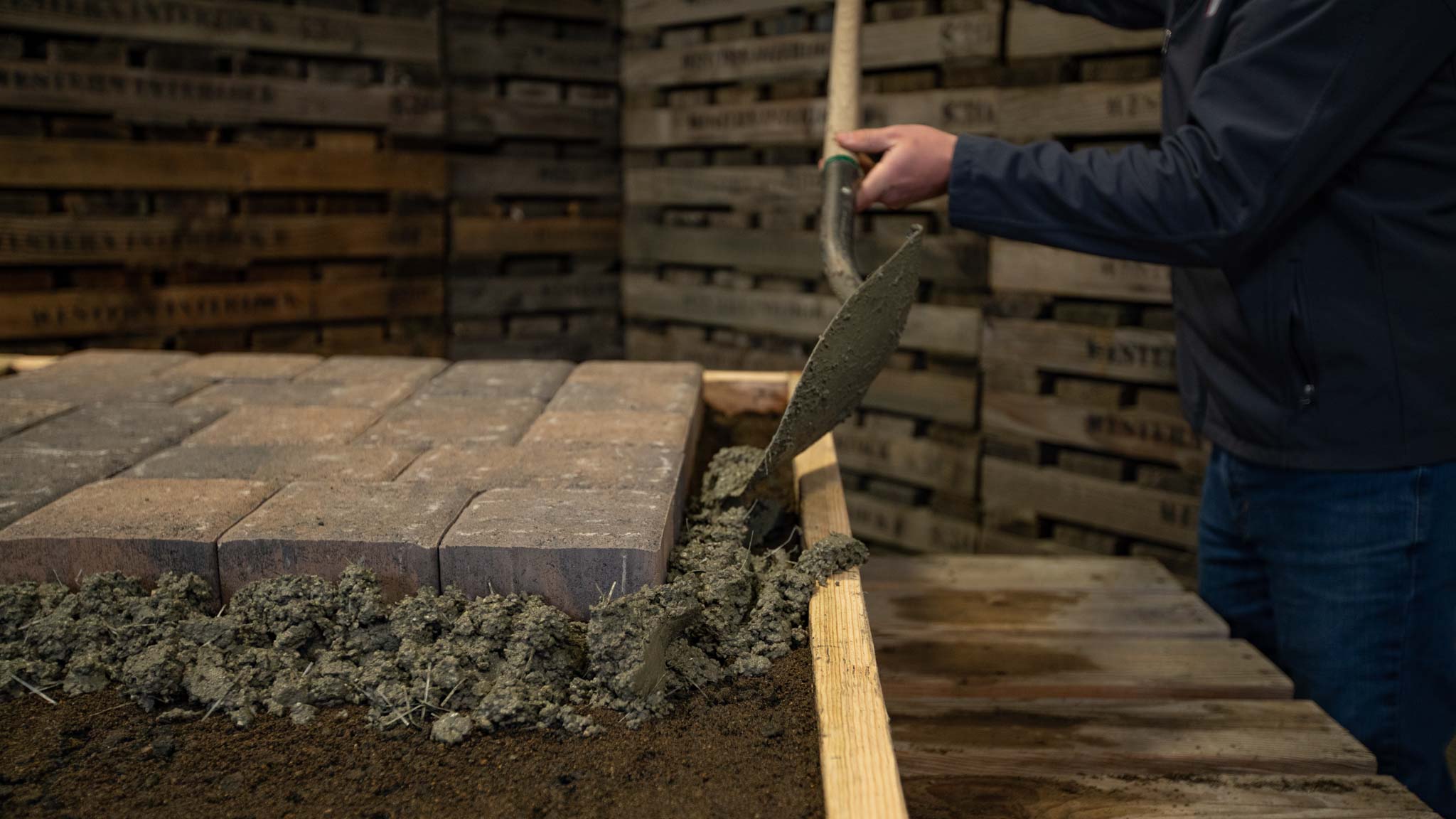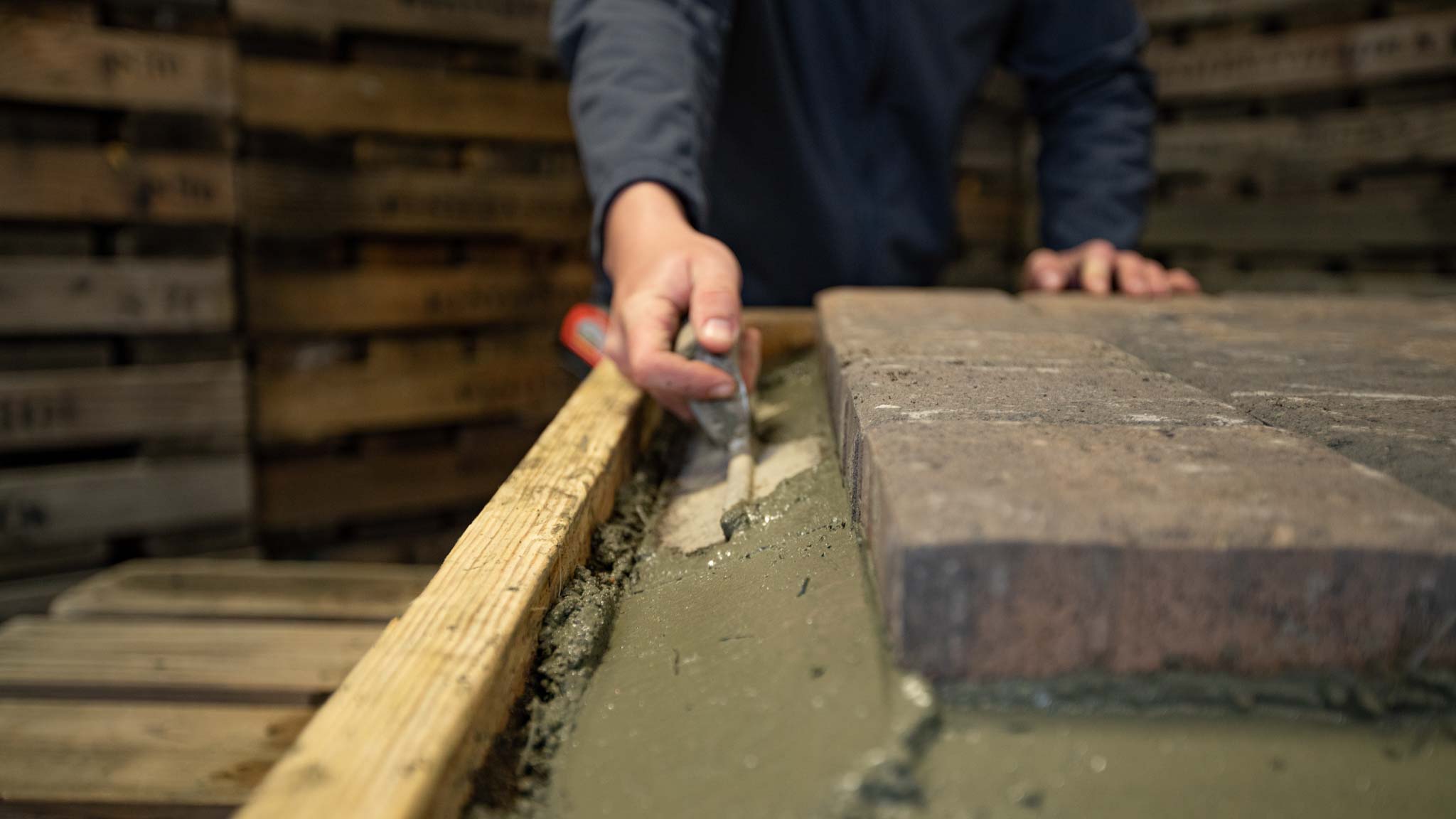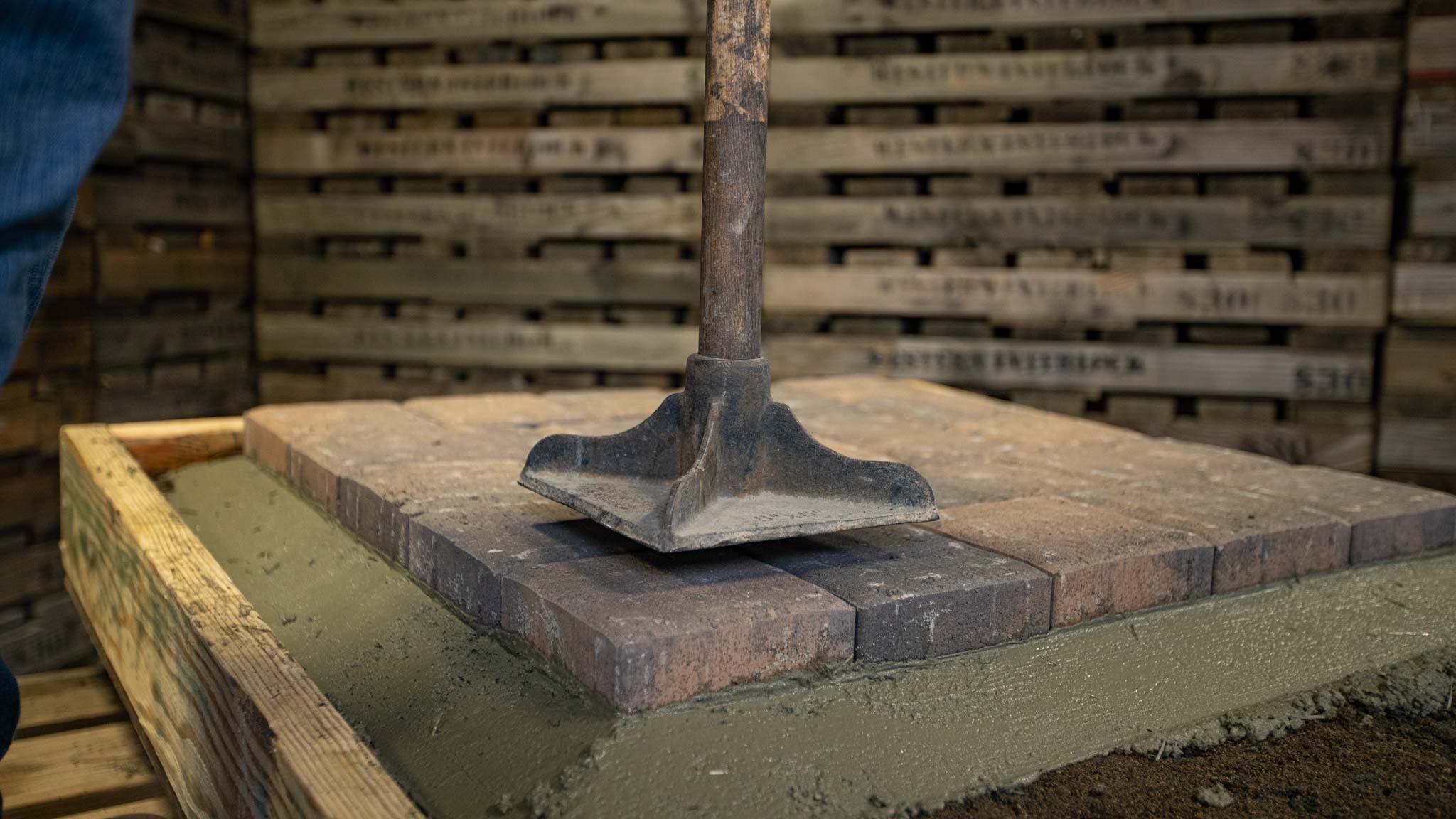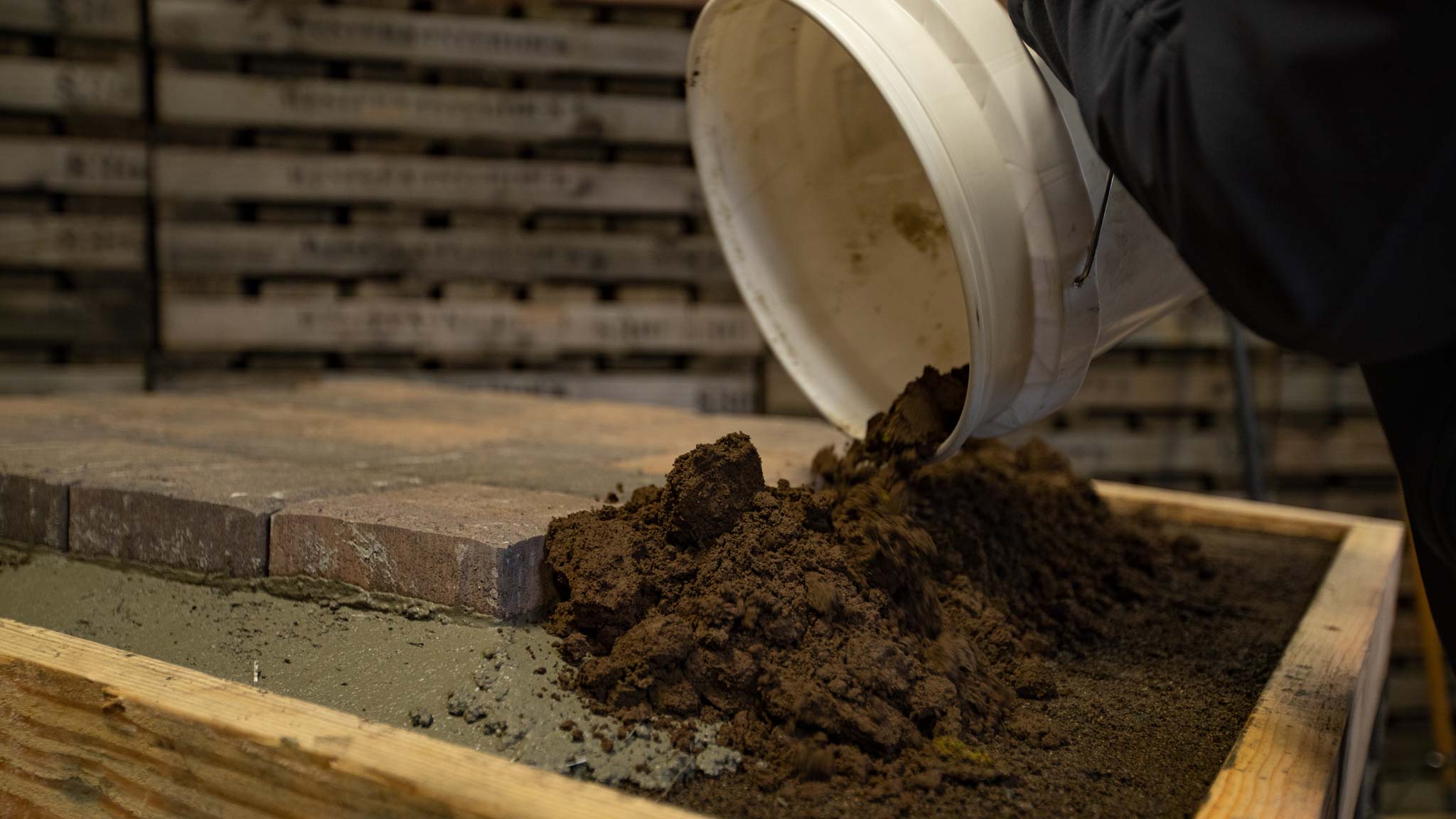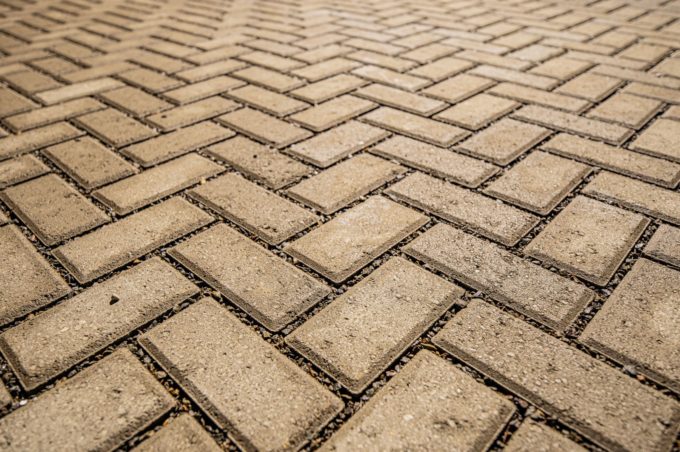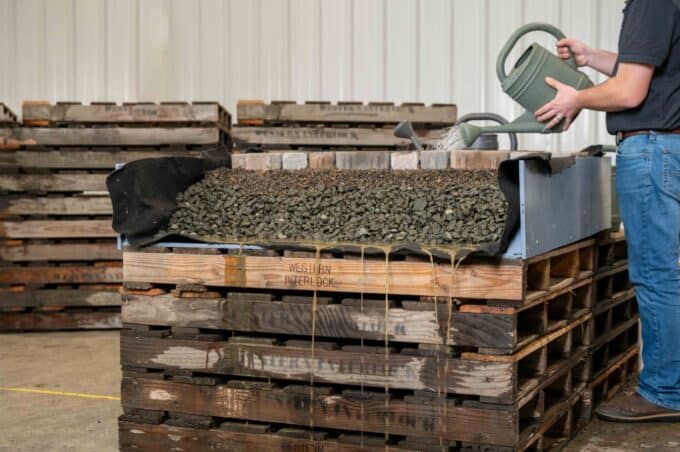Get our FREE Project Planning Guide
"*" indicates required fields
For decades, everyone has applied edging to their pavers using one of four tried-and-true methods: plastic edge restraint, concrete curbing, bond beam, and step edging. In the last few years, Chris Yancey, a professional hardscape contractor, developed a fresh paver edging product called Perma-Edge Paver Edging.
In this article, we’ll show you how to use it on your next patio, walkway, driveway, and more. Plus, we’re going to explain why we recommend Perma-Edge for professional and DIY hardscape projects.
Outdoor Supplies Needed
To properly install Perma-Edge, you’ll need to gather a few supplies:
- Wheelbarrow
- Shovel
- Trowel
- Hand tamp or plate compactor
- Water supply
- Perma-Edge
With these tools at your immediate disposal, you can get started.
Steps to Complete
1. Prep your edge
We’ve laid a small demonstration patio using Camino Stone in the Jamestown blend to illustrate the process. First, you’ll need to Install Your Pavers.
Pull the bedding layer away to expose the base rock. This is the most essential step in the process. Failure to do this WILL result in edge failure. It is sometimes helpful to wet the edge with a garden hose to keep the bedding sand in place under the pavers.
Now that you’ve prepped your edge, mix and apply Perma-Edge directly on top of the exposed gravel for good retention.
2. Mix the Perma-Edge
Mixing Perma-Edge is just like mixing concrete. All you have to do is take your bucket and dump it in a wheelbarrow.
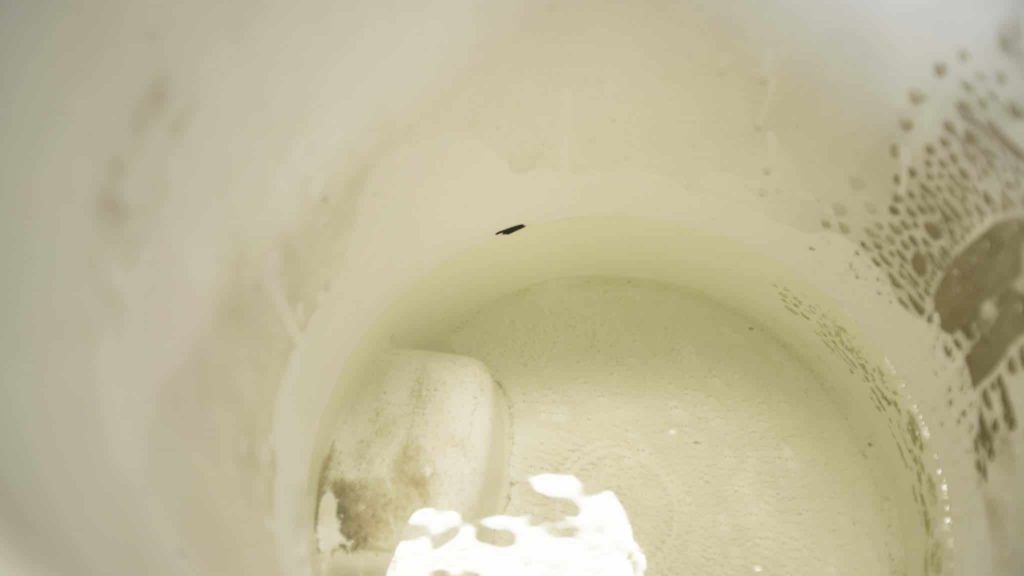
There’s already a pre-established amount of water you need. Measure three inches from the bottom of your bucket and make a hard line with a permanent marker. If you do this correctly, you won’t have to worry about adding more mix or water.
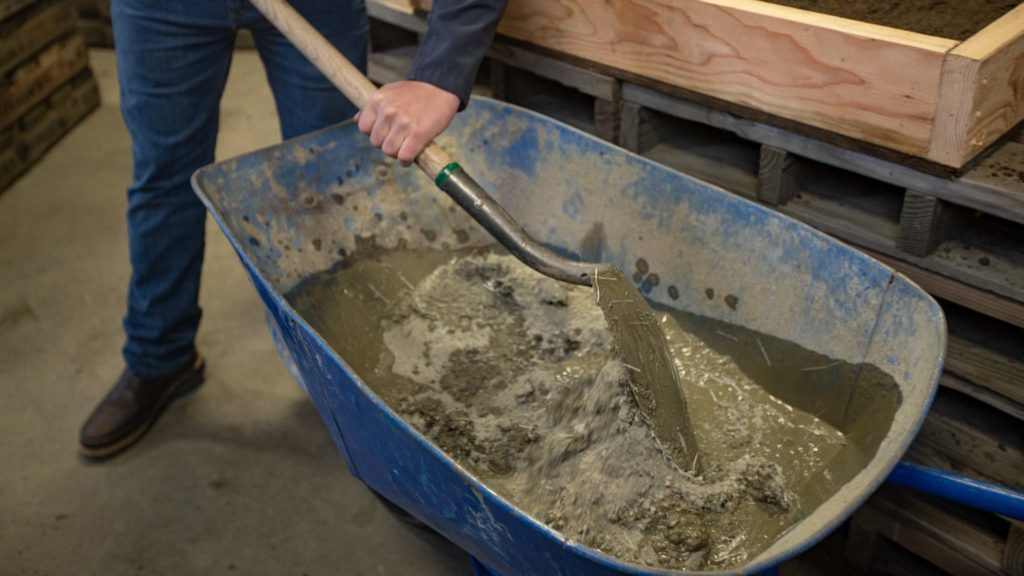
Once you’ve mixed your Perma-Edge, it should be the consistency of oatmeal.
3. Spread Perma-Edge around the perimeter
Use a shovel to place the Perma-Edge around the edges you want to retain. It is helpful to have two people for this process, one to shovel and one to trowel.
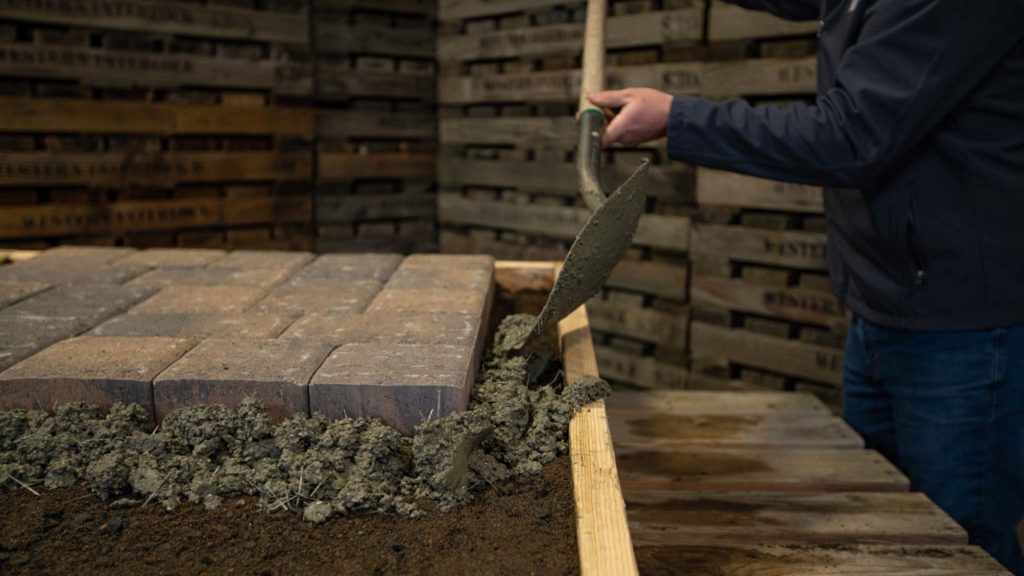
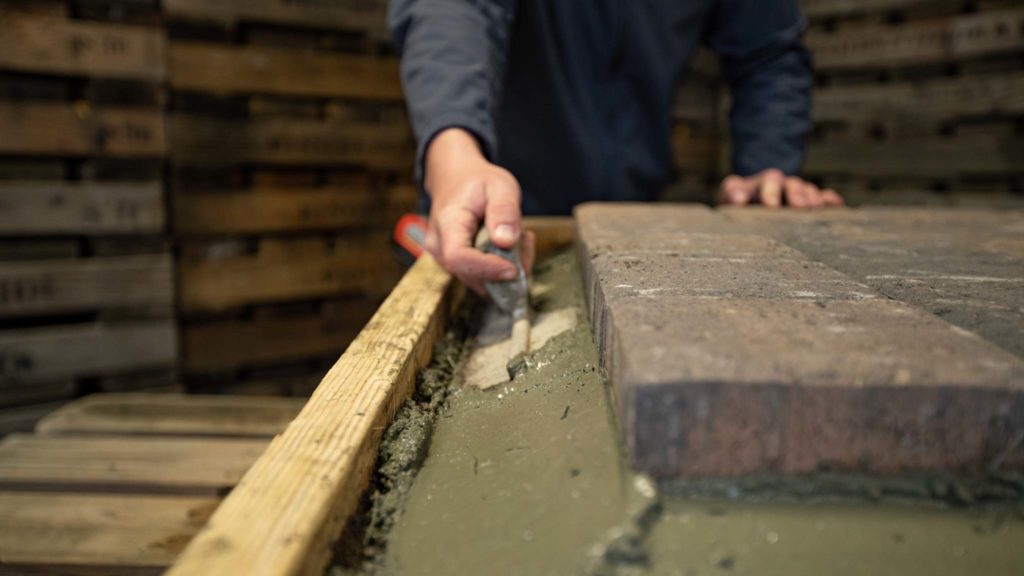
Pro Tip: Use a four-inch trowel to make your edge four inches wide.
4. Tamp or compact your pavers
Compacting will settle the pavers into their new edging, so they’re stable and secure. However, some slabs like La Lastra™ can’t be compacted because they’re large, and they’ll crack. To be safe, you can always use a hand tamp.
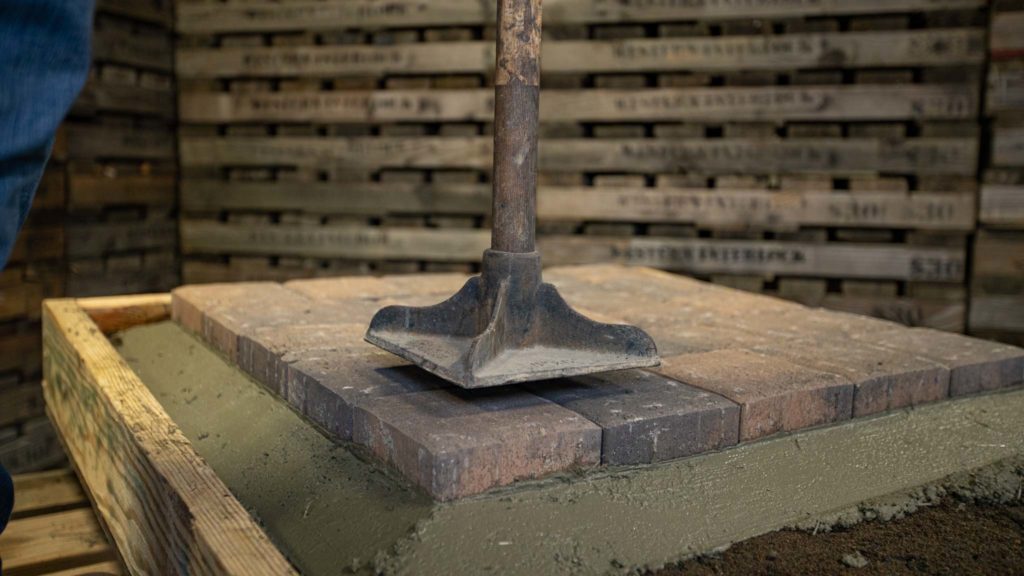
Once you’ve tamped or compacted your stone, cover up your edges with either decorative bark, round rock, or soil with some grass seed.
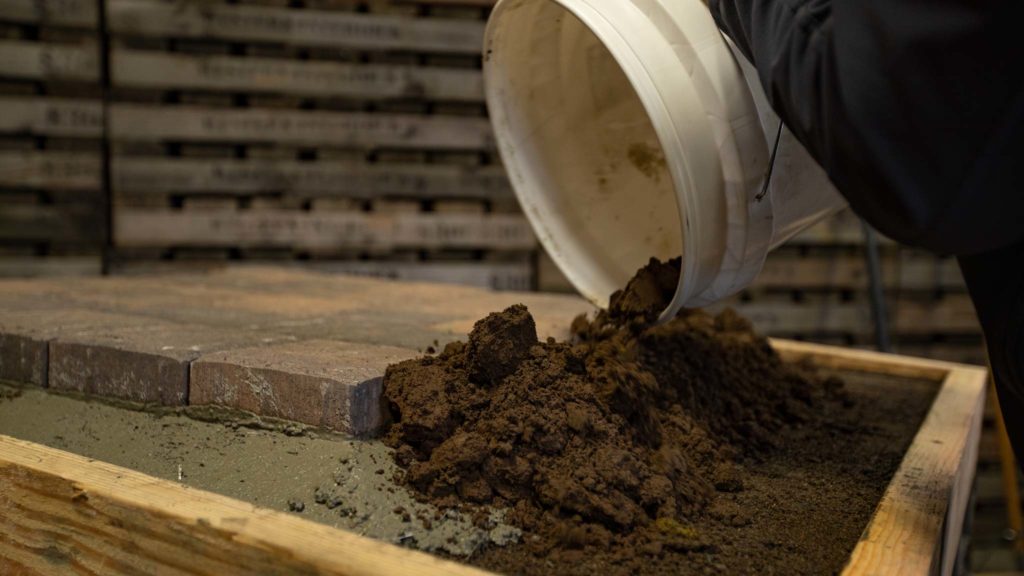
Why we recommend Perma-Paver Edging
You may be wondering, “Should I use Perma-Edge?” That’s a great question and, while there are other great paver edging options, we recommend Perma-Ege—and here’s why.
You’ll save time and energy
Perma-Paver Edging goes on quickly and easily. Truth be told, once it’s time to add your edge, you’re already tired out from laying your patio. The last thing you want to do is pound 50 ten-inch spikes into a compacted gravel base.
Perma Edge allows you to retain your project and start enjoying your patio sooner. We’ve seen people put down 25 linear feet of Perma Edge in less than 10 minutes, start to finish.
You’ll use less product and save more money
When applying a standard concrete edge restraint, you need at least a 1–1 ¼” inch of retention. Because of how Perma-Edge is mixed, you only need about ½”-⅝” of retention. That’s less than half of the amount of product.
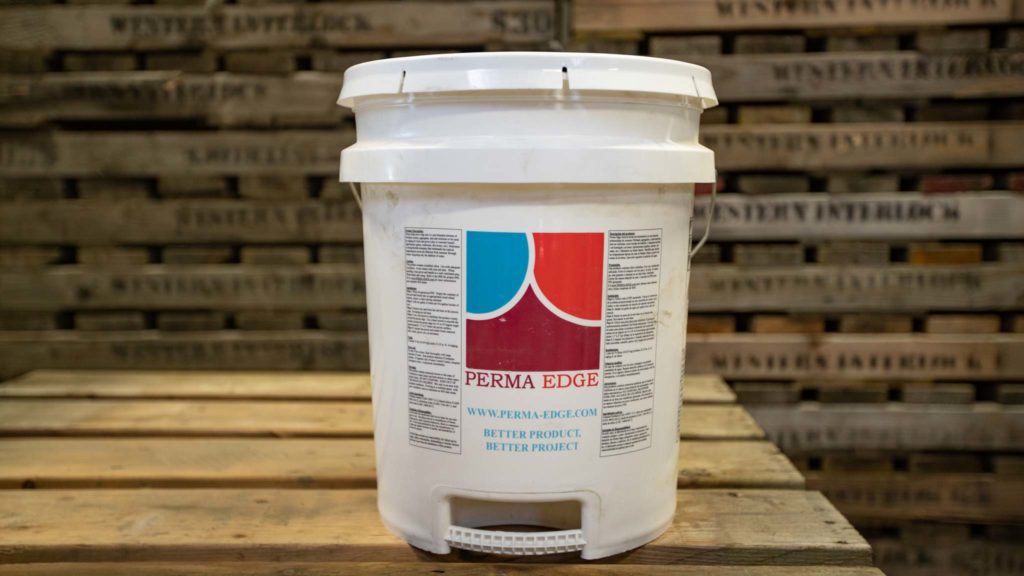
Your hardscape will be more flexible
When you have a flexible paving system like paving stones, you want them to form with the environment around them. Concrete curbing is stiff and not very pliable—and when put in harsh conditions, it typically cracks.
Perma-Edge does the exact opposite. Product research shows that it’s 40% more permeable than ordinary concrete—and it creates a long-lasting edge that will float and flex with your sub-base.
Learn to lay Stones like a professional
We’re on a mission to take the hard out of hardscaping. That’s why we publish DIY tips, tricks, and step-by-step tutorials at DIYwithWI.com every week.
If you have any questions about your next hardscape project, you can visit us or call our stone paver experts at 503-623-9084.
Get our FREE Project Planning Guide
Tell us where to send it and we’ll email the backyard planning guide to you right away!
"*" indicates required fields


